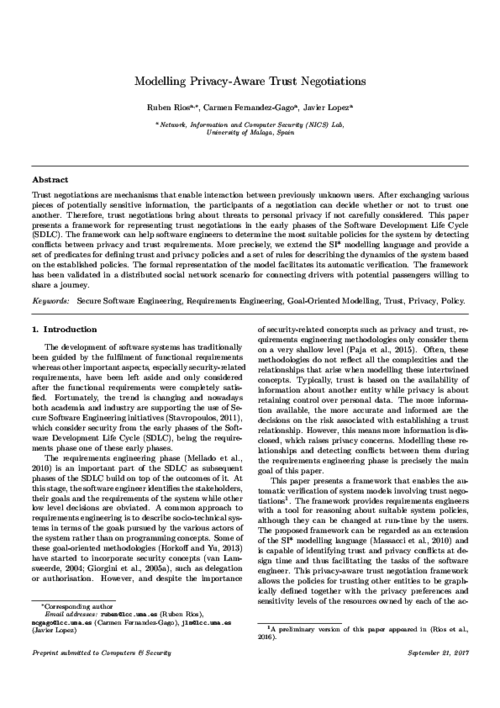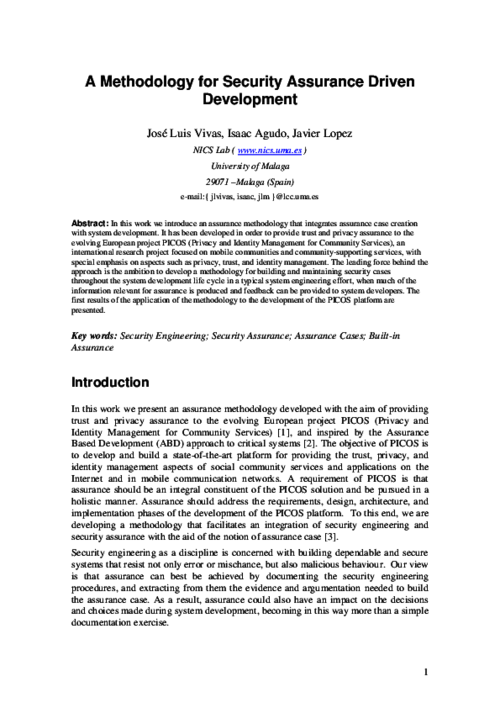Computers & Security, vol. 77 , issue August 2018, Elsevier, pp. 773-789, 2018. DOI
Abstract
Trust negotiations are mechanisms that enable interaction between previously unknown users. After exchanging various pieces of potentially sensitive information, the participants of a negotiation can decide whether or not to trust one another. Therefore, trust negotiations bring about threats to personal privacy if not carefully considered. This paper presents a framework for representing trust negotiations in the early phases of the Software Development Life Cycle (SDLC). The framework can help software engineers to determine the most suitable policies for the system by detecting conflicts between privacy and trust requirements. More precisely, we extend the SI* modelling language and provide a set of predicates for defining trust and privacy policies and a set of rules for describing the dynamics of the system based on the established policies. The formal representation of the model facilitates its automatic verification. The framework has been validated in a distributed social network scenario for connecting drivers with potential passengers willing to share a journey.

Requirements Engineering, vol. 16, no. 1, Springer, pp. 55-73, Mar 2011. DOI
Abstract
In this work, we introduce an assurance methodology that integrates assurance case creation with system development. It has been developed in order to provide trust and privacy assurance to the evolving European project PICOS (Privacy and Identity Management for Community Services), an international research project focused on mobile communities and community-supporting services, with special emphasis on aspects such as privacy, trust, and identity management. The leading force behind the approach is the ambition to develop a methodology for building and maintaining security cases throughout the system development life cycle in a typical system engineering effort, when much of the information relevant for assurance is produced and feedback can be provided to system developers. The first results of the application of the methodology to the development of the PICOS platform are presented.

 ]
]